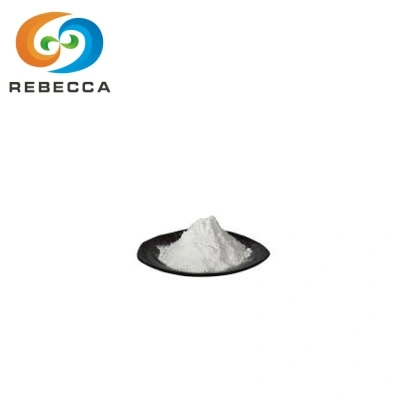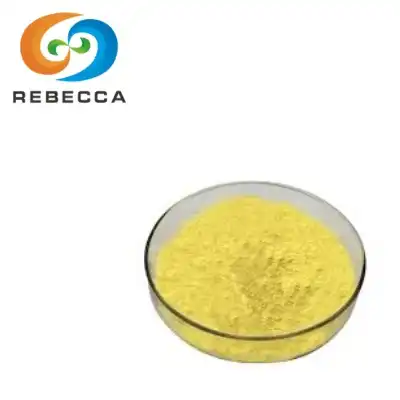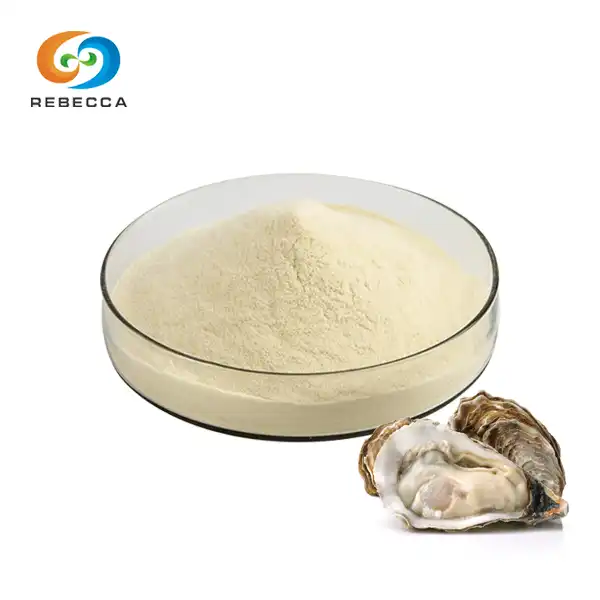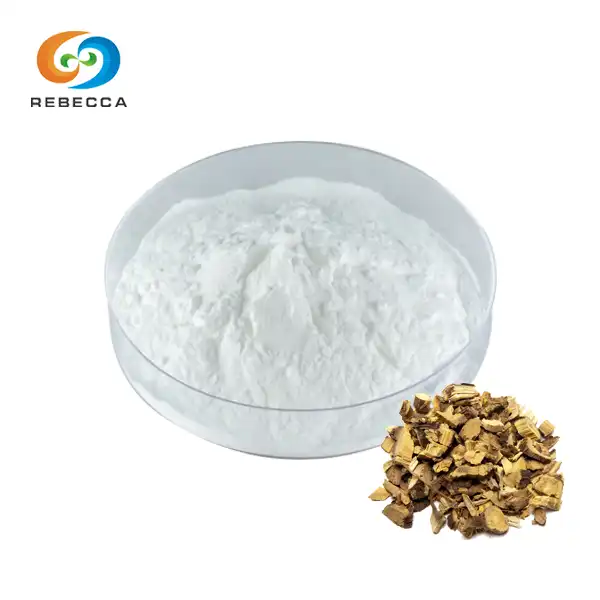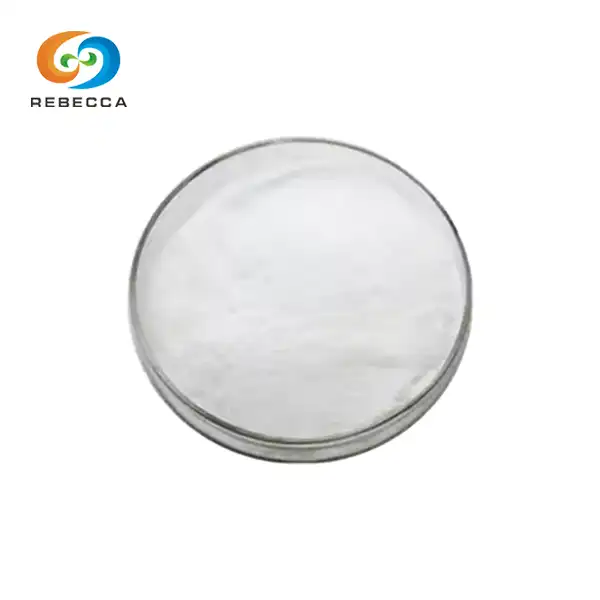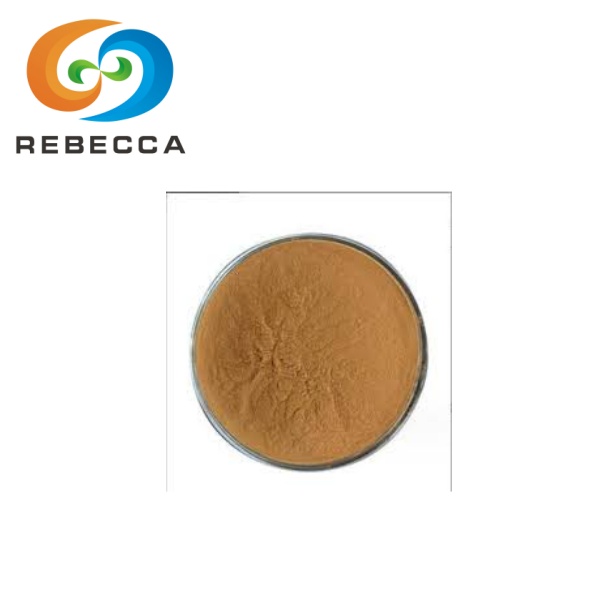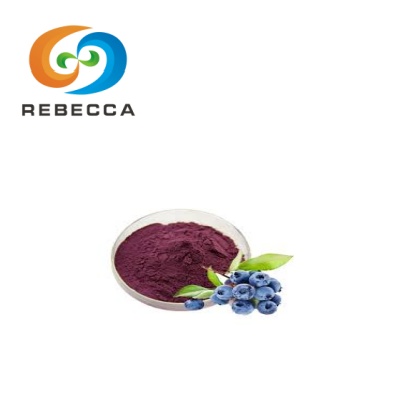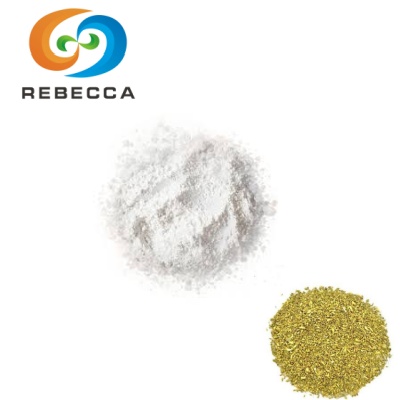Is L-ergothioneine a longevity vitamin?
One compound that has intrigued scientists is L-Ergothioneine(CAS 497-30-3), a naturally found amino acid with distinct characteristics. As we delve into the potential of ergothioneine as a longevity vitamin, we'll explore its roles in cellular protection, inflammation reduction, and its impact on healthspan and lifespan.
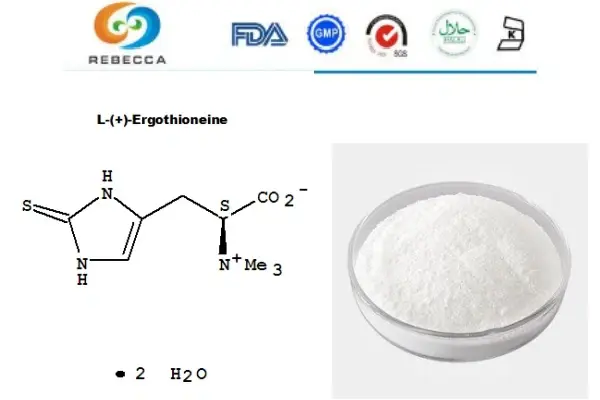
L-ergothioneine's Role in Cellular Protection
L-ergothioneine, often simply called ergothioneine, is a sulfur-containing amino acid that has been the subject of increasing scientific interest. Its role in cellular protection is multifaceted, with two key aspects standing out: its antioxidant properties and its support of mitochondrial function.
It acts as a potent antioxidant in our bodies. Antioxidants are crucial molecules that help neutralize harmful free radicals, which are unstable molecules that can damage our cells through a process called oxidative stress. This oxidative damage is believed to be a significant contributor to aging and various age-related diseases.
What sets ergothioneine apart from many other antioxidants is its ability to concentrate in tissues that are particularly vulnerable to oxidative stress. These include organs like the brain, liver, and heart. By accumulating in these areas, it provides targeted protection where it's needed most. This selective concentration is facilitated by a specific transporter protein, OCTN1, which actively moves ergothioneine into cells.
In the brain, for instance, L-Ergothioneine has been shown to protect neurons from oxidative damage. This is particularly important as the brain is highly susceptible to oxidative stress due to its high energy demands and limited antioxidant defenses. By safeguarding brain cells, ergothioneine may play a role in maintaining cognitive function as we age.

Beyond its direct antioxidant effects, ergothioneine also supports mitochondrial health. Mitochondria are often called the powerhouses of the cell, as they produce the energy our cells need to function. However, this energy production process also generates free radicals as a byproduct. It helps protect mitochondria from this self-inflicted damage, allowing them to continue producing energy efficiently.
Maintaining mitochondrial health is crucial for longevity. As we age, mitochondrial function tends to decline, which is associated with various age-related conditions and the general aging process. By supporting mitochondrial health, it may help slow this aspect of cellular aging.
Studies indicate that ergothioneine plays a role in safeguarding mitochondria against oxidative harm and aids in preserving their functionality during stressful situations. This defense also encompasses mitochondrial DNA, which is especially susceptible to oxidative harm because of its closeness to the area where free radicals are generated within the mitochondria.
Reduction of Age-related Inflammation
Persistent, mild inflammation is increasingly seen as a characteristic of aging. This wonder, frequently alluded to as "inflammaging," is related with a wide extend of age-related maladies, counting cardiovascular illness, sort 2 diabetes, and neurodegenerative disarranges. L-Ergothioneine's potential to reduce this age-related inflammation is another reason why it's being considered as a possible longevity vitamin.
Its anti-inflammatory effects are multifaceted. At a molecular level, ergothioneine has been shown to inhibit the activation of NF-κB, a key regulator of the inflammatory response. NF-κB activation tends to increase with age, driving chronic inflammation. By dampening NF-κB activity, it may help keep inflammation in check.
Moreover, its antioxidant properties also contribute to its anti-inflammatory effects. Oxidative stress and inflammation are closely linked, with each capable of perpetuating the other. Reducing oxidative stress indirectly helps to lower inflammation.

Studies have demonstrated L-Ergothioneine's anti-inflammatory effects in various contexts. For instance, in frameworks of inflammatory bowel disorders, ergothioneine has demonstrated its ability to mitigate inflammation and safeguard the intestinal lining. In terms of heart health, ergothioneine has been observed to diminish indicators of inflammation within blood vessel cells, potentially offering protection against arterial hardening.
The implications of these anti-inflammatory effects for longevity are significant. Chronic inflammation is thought to accelerate the aging process and increase the risk of age-related diseases. By helping to keep inflammation in check, ergothioneine may slow down some aspects of aging and reduce the risk of inflammatory age-related conditions.
It's worth noting that while acute inflammation is a necessary part of our body's defense system, it's the chronic, low-grade inflammation that tends to increase with age that's problematic. It appears to help maintain a balanced inflammatory response, rather than completely suppressing inflammation.
Longevity and Healthspan Research
The potential of ergothioneine as a "longevity vitamin" is an exciting area of ongoing research. This term, proposed by some scientists, reflects ergothioneine's role in protecting the body from various stressors that can accelerate aging.
Several animal studies have provided intriguing insights into its effects on healthspan - the period of life spent in good health. In one study with nematode worms, supplementation with ergothioneine increased their lifespan and improved their resistance to various stressors. Another study in mice found that ergothioneine supplementation improved cognitive function in older animals.
These studies suggest that ergothioneine may not just extend lifespan, but also healthspan - a crucial distinction in longevity research. Living longer is of limited benefit if those extra years are spent in poor health. its potential to improve healthspan is thus particularly exciting.
The mechanisms by which ergothioneine might promote longevity are multifaceted. Its antioxidant and anti-inflammatory properties, discussed earlier, play a significant role. By protecting cells from damage and reducing chronic inflammation, it may slow down many of the processes associated with aging.
Ongoing research is exploring several key questions: Can L-Ergothioneine supplementation effectively extend lifespan in humans? What is the optimal dosage for potential longevity benefits? Are there any long-term side effects of supplementation? These are complex questions that will require extensive clinical trials to answer definitively.
It's also worth noting that ergothioneine is found naturally in some foods, particularly mushrooms. Some researchers have speculated that the longevity-promoting effects of mushroom consumption observed in some population studies might be partly due to their ergothioneine content. However, more research is needed to confirm this hypothesis.
Rebecca L Ergothioneine Powder
As interest in ergothioneine grows, various companies are working to produce high-quality ergothioneine supplements. One such company is Rebecca Bio-Tech, which produces ergothioneine powder. Their product is described as an odorless white crystal that is non-hygroscopic, meaning it doesn't readily absorb moisture from the air.
An important feature of Rebecca Bio-Tech's L-Ergothioneine powder is that it's free of "toxic solvents". This is a crucial consideration for any supplement, as the presence of harmful solvents could potentially negate the health benefits of the ergothioneine itself.
For those interested in learning more about Rebecca Bio-Tech's ergothioneine powder, the company provides a contact email: information@sxrebecca.com.
References
1. Halliwell, B., Cheah, I. K., & Tang, R. M. Y. (2018). Ergothioneine - a diet-derived antioxidant with therapeutic potential. FEBS Letters, 592(20), 3357-3366.
2. Cheah, I. K., & Halliwell, B. (2012). Ergothioneine; antioxidant potential, physiological function and role in disease. Biochimica et Biophysica Acta (BBA)-Molecular Basis of Disease, 1822(5), 784-793.
3. Ames, B. N. (2018). Prolonging healthy aging: Longevity vitamins and proteins. Proceedings of the National Academy of Sciences, 115(43), 10836-10844.
4. Cheah, I. K., Feng, L., Tang, R. M. Y., Lim, K. H. C., & Halliwell, B. (2016). Ergothioneine levels in an elderly population decrease with age and incidence of cognitive decline; a risk factor for neurodegeneration? Biochemical and Biophysical Research Communications, 478(1), 162-167.
5. Pahwa, R., Goyal, A., Bansal, P., & Jialal, I. (2020). Chronic Inflammation. In StatPearls. StatPearls Publishing.
6. Franceschi, C., Garagnani, P., Parini, P., Giuliani, C., & Santoro, A. (2018). Inflammaging: a new immune-metabolic viewpoint for age-related diseases. Nature Reviews Endocrinology, 14(10), 576-590.
